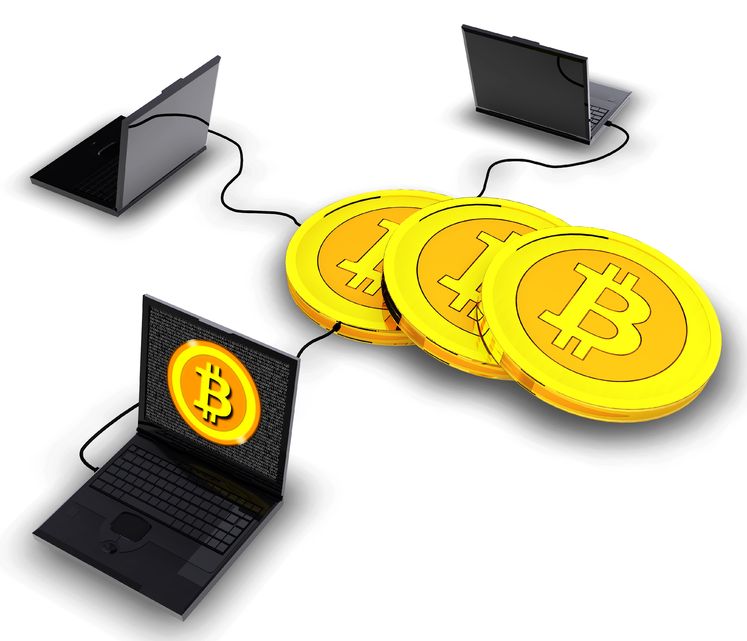ICO, Bitcoin and other "cryptocurrencies"

The popularity of Bitcoin has inspired the introduction of other cryptocurrencies and given rise to initial coin (or token) offerings (ICO), which are typically online fundraising activities for blockchain technology-related projects. Although certain ICOs have made the headlines by raising millions of dollars within minutes or hours, from an investor's perspective, participating in an ICO may pose significant risks. Investors should be cautious that ICO projects may fail to live up to expectations or could be outright scams.
What is an ICO?Typically, an ICO is a fundraising mechanism offered to investors whereby a project operator issues digital "tokens" or "coins" to fund a particular blockchain-related project (e.g. to develop a new blockchain business platform) in exchange for a widely-used cryptocurrency (such as Bitcoin or Ether) or cash. The project operator often sets out the business proposal and token holder's rights in a so-called "white paper" which is published online. Investors may invest for the benefits and rights associated with the digital tokens (e.g. right to access the new platform or software under the ICO project) or may be lured by the profit potential on speculation that the token value will become higher than the initial price. ICOs can also be structured in other ways with different business propositions, such as offering an opportunity to invest in a property, business, or assets, and/or with a promise of certain benefits or monetary returns. These new digital tokens may be made available to trade in cryptocurrency trading platforms after the initial offering to enable secondary market transactions. These tokens are generally regarded as new cryptocurrencies. What is a cryptocurrency or a digital token?A digital token is a digital representation of the token holder's right to, e.g. an underlying asset, receipt of a benefit, or access a product. Cryptocurrency is a type of digital token which typically functions as a medium of exchange, unit of account, or store of value. One of the most popular forms of cryptocurrency is Bitcoin. A cryptocurrency/digital token is generally regarded as a virtual commodity and does not constitute legal tender in many jurisdictions including Hong Kong. |
What are the risks?
Due to the potential risks involved, regulators in different jurisdictions have expressed concerns over activities involving ICOs, digital tokens and cryptocurrencies. Some of the key risks to investors include:
-
Possible scams
An ICO is generally premised on a "project in future" and could be a mere scam. Fraudsters may entice investors by touting an ICO investment "opportunity" as a way to get into this cutting-edge space, or promising high investment returns. ICOs may be classified as an illegal activity in certain jurisdictions.
There have also been cases of scams relating to cryptocurrencies where victims were lured into buying "Bitcoin mining contracts" through online trading platforms with the promise of guaranteed returns. The trading platforms could suddenly cease operations and the fraudsters could flee with victims' funds.
-
Risks associated with money laundering, terrorist financing or misuse for criminal activities
ICOs are susceptible to money laundering and terrorist financing risks due to the relatively anonymous nature of the transactions and the ease with which large sums of monies may be raised in a short period of time. Where criminal activities are involved, the relevant platforms/activities may be closed as a result of law-enforcement action, and investors may not be able to get back their investments.
-
Project prospect and limited information
Even if an ICO project is legitimate or takes-off initially, there is the risk that the ICO operator may not have a proven business track record, and as such the project could be put on hold or delayed, and the tokens in the ICO might become worthless.
ICOs generally are accompanied by a "white paper" that explains the project, the technology involved, and the prospects of the business. These white papers can be highly technical and complicated. They may not be subject to defined standards or formats in terms of overall content, comprehensiveness, risk disclosure or audits, and the statements made in them may not be verified or verifiable.
-
Platform risk
There are cryptocurrency trading platforms set up by private enterprises. These platforms may be unregulated and located overseas. If these platforms cease operations, collapse, or are hacked, investors may face the possible risk of losing their entire investments held on these platforms. For example, Mt. Gox, once the world's biggest bitcoin exchange, closed down in 2014 and millions of U.S. dollar worth of bitcoins that it held for clients were stolen by hackers. Cyber-attacks resulting in the theft of cryptocurrencies are becoming increasingly common.
-
Wallet security
Cryptocurrency wallets store the public key (address where you store the cryptocurrencies) and private key (passwords that give you access to your cryptocurrencies) which can be prone to losses arising out of hacking, virus infection, loss or theft of password etc. Also the loss of cryptocurrency wallets can result in the permanent loss of the cryptocurrencies held in them, and the chances of recovering such losses are very low given the relatively anonymous nature of cryptocurrency systems and there being no central data bank.
-
Highly volatile and speculative
The valuation of digital tokens and cryptocurrencies is usually not transparent, and highly speculative. Tokens usually are not be backed by any tangible assets. Such tokens would be merely speculative investments and their prices can fluctuate greatly within a short period of time. The digital tokens could be rendered worthless and investors may stand to lose all of their investments.
-
Liquidity risk
Even if digital tokens and cryptocurrencies are tradable in a secondary market, there may not be enough active buyers and sellers, and may not be widely accepted for transactional purposes. Token holders may not be able to liquidate their investments easily. In the worst case scenario, an investor may not be able to liquidate or utilise his token holdings at all.
-
Not backed
Cryptocurrencies may not be backed by any physical items, issuers or the real economy. Investors may not be able to obtain a refund of their monies should a cryptocurrency collapse.
-
Cross-border risk
As with many novel online investment activities, ICOs are likely cross-border in nature and may not be confined to a local jurisdiction. It could be difficult to verify their authenticity and trace the operators. It is often unclear in such cases under which law the investors can seek redress in case of fraud, default or bankruptcy. Investors may have difficulty enforcing their rights and interests if anything goes wrong.
Are digital tokens/cryptocurrencies and ICOs regulated in Hong Kong?
Digital tokens/cryptocurrencies are usually characterised as virtual commodities in Hong Kong, and a virtual commodity itself is not "securities" as defined under the Securities and Futures Ordinance (SFO). Digital tokens/cryptocurrencies are also not legal tender in Hong Kong.
ICOs may be structured differently. Depending on the facts and circumstances of an ICO, digital tokens that are offered or sold may be "securities" as defined in the SFO, and accordingly subject to the securities laws of Hong Kong.
Additionally, according to the regulatory framework set out by the Securities and Futures Commission (SFC) in November 2019, virtual asset trading platforms which offer trading of at least one security token are required to apply for a licence from the SFC for Type 1 (dealing in securities) and Type 7 (providing automated trading service) regulated activities, and subject to regulatory standards comparable to those which apply to licensed securities brokers and automated trading venues. Learn more: Are cryptocurrency trading platforms regulated?
Please refer to the following for details:
- SFC Warning Statement on Unregulated Virtual Asset Platforms (16 July 2021)
- SFC licenses first virtual asset trading platform (16 December 2020)
- SFC adopts new approach to virtual asset trading platforms (6 November 2019)
- Statement on Security Token Offerings (28 March 2019)
- SFC issues statement on initial coin offerings (5 September 2017)
Cryptocurrencies, ICOs and other investment arrangements involving digital tokens are highly speculative and may pose significant risks. Investors are reminded to exercise due diligence to understand the features and associated risks. You should not invest in any financial products or activities that you do not know or understand well. Without full knowledge of the features, operation mechanisms and risks, you are advised not to follow the herd and participate in speculation. Please seek legal and/or other professional advice if in doubt.
Know more about Bitcoin

Bitcoin was the first cryptocurrency that was introduced in 2009, and since then, hundreds of alternative cryptocurrencies have emerged such as Ether, Ripple and Litecoin, to name a few.
Bitcoin is an electronic payment medium invented by a person or group of persons whose real identity remains unknown. Bitcoins can be transferred electronically and can be used as a means to "pay"/exchange for goods or services with merchants who accept them. But unlike traditional currencies, bitcoin is not backed by any bank or government, nor supported by its issuers. In Hong Kong, bitcoin is considered a virtual commodity, and is not legal tender.
Bitcoins can be acquired and sold through bitcoin trading platforms, and they can be transferred digitally via mobile apps and computers. Bitcoin can be stored in a digital wallet, in a cloud or on a user's computer.
There are no actual physical bitcoins, only records of bitcoin transactions. Bitcoin is operated under a peer-to-peer technology called blockchain whereby every single transaction that takes place in the bitcoin network is recorded in a shared public ledger. Whenever a new block of transactions is created, it is added to the blockchain. Transactions are verified by other bitcoin users (known as miners) who earn a reward in bitcoins for this service. This verification and reward process is known as bitcoin mining.
While Bitcoins and other cryptocurrencies are gaining popularity over the past few years, nobody can predict the future of cryptocurrencies as it is still in the experimental stage and constantly evolving. Globally, the acceptance of cryptocurrencies remains uncertain. They have not yet been widely accepted as a means of payment by merchants generally and their value tends to be highly speculative. Consumers should be cautious when deciding to use, convert, trade, invest or hold cryptocurrencies.
8 September 2017




